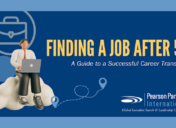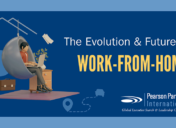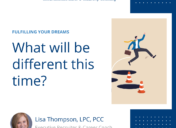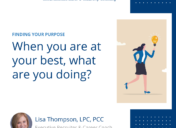Executive Interview Tips
 Lisa Thompson – Managing Director, Professional Services
Lisa Thompson – Managing Director, Professional Services
Preparing for Interviews
Securing an interview requires hard work and persistence. Once you’ve garnered an interview, excellence in communication skills is absolutely critical for success.
Understanding the basic concepts of effective communication in job interviews will help you present yourself as the best person for the job. Practicing your communication skills will prepare you to come across confidently and professionally in your interviews.
In your past positions, you may have conducted dozens or hundreds of interviews. However, even if you consider yourself experienced as an interviewer, there are special considerations with interviewing as the job seeker.
Basics of Communication
Studies have ranked communication skills as the number one key to success in business. While hard work and superior performance are key, they alone are not enough to ensure success.
The communication process can be summarized as who (the communicator) says what (the message) in what way (the medium) to whom (the receiver) with what effect (the feedback). How the communicator translates the message (encoding) and how the receiver understands the message (decoding) are also important. Further, “noise” pervades the process and often distorts the intended meaning of the message.
Communication Medium
Verbal communication is the most common medium for conveying messages. However, how the receiver understands the message has as much to do with image and body language as words. In fact, a research study by U.C.L.A. scholar Alber Mehribian concluded that message interpretations are determined 55% by the communicator’s body language, 38% by the communicator’s image, and only 7% by the communicator’s words themselves.1
Body Language
Think of the familiar saying “actions speak louder than words.” Actions or body language must be consistent with the words you use. For example, saying that you are enthusiastic will be believable if you don’t show it.
10 Most Common—And Potentially Deadly—Interview Questions
Sometimes what seem to be the simplest of interview questions are potentially the most dangerous. It’s not that the interviewer is out to trick you, but these are opportunities for you to inadvertently shoot yourself in the foot. While you may be asked as many as 40 or 50 different questions during the course of a lengthy interview, the following are some of the questions that can be the most deadly—and preparing for these questions can help ensure your success.
Tell me about yourself.
Caution: An applicant who stumbles over this question immediately raises a red flag to the interviewer and signals that this is a person who is not well prepared. Answers that go on too long (more than three minutes) or are too personal also indicate an individual who is not focused on a job search marketing campaign.
Recommendation: Here is the best place to use your “infomercial” about yourself. Some people prefer to begin with a brief personal history, while others opt to go straight to a professional sketch and then bring in a few personal details. Keep to broad-brush statements and save the details for follow-up questions. Close with a broad statement, such as “I have strong accomplishments in all areas” that invites the interviewer to follow up with “Can you describe some of your accomplishments?” Be Prepared with relevant accomplishments to introduce during the “two minute infomercial”.
Why did you leave your last position?
Caution: Watch out for words, tone of voice, or body language that convey emotional “baggage” such as anger, bitterness, embarrassment, etc. Don’t dwell on the details. Potential employers probably care a lot less about this than you think—unless your answer gives them cause to focus on it.
Recommendation: As long as you were not released for cause (poor performance, substance abuse, criminal activity, etc.) this question should lead into a positive statement. “The company was going through a downsizing or a reorganization. Many good people were adversely affected. I realize the company was making a conscious business decision, so I look at this as an opportunity to explore other situations where I can make a contribution with the skills I possess. I’m looking for a good match, and I think this opportunity may be it.” If you were released for cause, discuss appropriate answers with your consultant and plan extra rehearsal time to become comfortable with possible follow-up questions and responses.
What are your goals?
Caution: Don’t get too specific, such as a certain amount of salary or a job title. Don’t be too self-centered or ambitious.
Recommendation: Give one or two sentences to long-range career goals where you want to be in 10 years.
What are your strengths/weaknesses?
Caution: There should be no danger to answering the “strengths” part of the question since you have spent so much time in identifying them. Describing “weaknesses,” however, can be tricky since you don’t really want to go into detail about why you are not the perfect person for this job.
Recommendation: There are four safe ways to handle a question about your weaknesses:
- One is to present as a “weakness” a characteristic that many employers might consider a strength. For example, “I am very cost conscious and some people misconstrue this as being cheap.” Or, “I am impatient with people who do not do what they say they will do.”
- The second method is to pick a weakness that reflects your work style. For example, “When assigned a project, I concentrate on the big picture. There are times when details fall between the cracks. That’s why I always try to get people on my team who are detail oriented. I know my weakness and how to deal with it.”
- The third way to handle a question on weakness is to give a safe, generic answer. For instance, “I can use more training in the latest, most current technical areas.” Everyone can use more training, but be careful that you do not imply you cannot meet the challenges of this job due to a lack of training. Yes, you can do it now, but you would like to take your skills to “cutting-edge” status.
- Finally, you can feel relatively safe in talking about a mistake or faux pas early in your career when you were young, inexperienced, and lacked business savvy. Emphasize the lessons you learned from this experience and how you later used what you learned in similar experiences.
What do you know about this company?
Caution: Can you imagine what goes through the interviewer’s mind when an applicant answers this with “Nothing” or “Not too much?”
Recommendation: Research, research, research! Know more than you think you’ll need to know. Now is the time to pull out your mental notes and dazzle the interviewer with your familiarity with the company, industry trends, and “inside information.” If for some reason, the interviewer does not ask this question, look for opportunities to show that you have done your homework. Always know more about the organization and the interviewer than they do about you.
Why do you feel qualified for this job?
Caution: No hesitancy and no shyness allowed. You would not be in this interview at all if you were not qualified for this position. Interviewers do not waste their time—and neither do you. Even if you are feeling overwhelmed by the new information you have gathered in this interview, remember the achievements you have identified.
Recommendation: Frame your response so that it satisfies the organization’s needs, and then fill it in with a meaty description of your skills, characteristics, and achievements. Make specific reference to the information the interviewer gave in the job overview at the beginning of your conversation, and draw on facts you gathered when you asked about the organization’s current problems and needs.
What was your most significant achievement?
Caution: Most applicants can answer this question, but fall into one of two traps—selecting an example that clearly doesn’t relate to this organization, or going into far too much detail. Keep your anecdote brief and allow the interviewer to ask for the long version of the story.
Recommendation: By this time, you know your achievements as well as your phone number. Select the most appropriate example and use them strategically to make it meaningful to the interviewer. You and your ECC Coach have worked extensively on these – so use them
How would your boss describe your job performance?
Caution: The danger in this question comes from a less than ideal relationship with your past boss. Don’t try to paint a glowing picture if, in fact, the two of you were archenemies. Instead, talk about how you did not always agree on how to handle a situation. Describe how your work styles differed. Confide that you were not a “yes” person, but that you always got the job done.
Recommendation: This is the time to produce a letter of recommendation if you have one. The question is really asking what type of employee you are, as seen through someone else’s eyes. “My former boss would say that I have many fine skills and qualities, such as… Or, she would probably tell you about the times that I accomplished some great results, such as…”
Why should we hire you?
Caution: This is no time to be humble or coy. Be clear that you can do the job and that you want the job.
Recommendation: Talk about how you can handle the responsibilities of the job and how you can make a fine contribution to the organization. Describe your potential to do wondrous things at the organization and how you have the experience to back it up. Ask for the order—repeat that you want the job, even if you are not 100% sure at this point that you do.
What are your salary expectations?
Caution: Don’t blurt out a number without knowing what the organization expects to pay this position. You can easily categorize yourself as under or overqualified before you have even gotten into the heart of the interview. Avoid giving an exact salary history and instead provide an answer of what salary range you are looking for.
Recommendation: First try answering the question with a question. “May I ask what is the salary range for this position?” or “How much do you normally pay someone with my skills, background, and experience?” If the interviewer asks you straight out what you were earning, counter with “I am looking for an opportunity with earnings in the range of ______. For example, give a number that is the base of an acceptable range and add a 10% swing, e.g. $150-165K. Then ask, “How much were you considering for this position?” Be prepared to hear anything from $130,000 to $150,000. If your stated range is under or over the interviewer’s answer, you must deal with the discrepancy immediately or you may be eliminated as being overqualified or under qualified.
If the presumption is you are overqualified, assure the interviewer that “Money is only part of what I seek in my next position. I am looking for the right opportunity where I can contribute, be challenged and grow. This looks like that kind of situation. Money will follow a job well done. I am interested in pursuing this.”
If the presumption is that you are under-qualified, assert that this job has certain requirements that you fulfill. “I have the experience and ability to do this job. As I understand it, you need someone who can _______. I have a proven track record in that when I ________, and I can produce the results you need.”
Why are employers afraid of “overqualified” applicants?
If your career objective is leading you to apply for jobs where you appear overqualified, you may not be getting the kind of reception you expected. Shouldn’t these employers feel thrilled and grateful to be able to access your wealth of talents and experiences? Why are they so skeptical or downright negative about your over qualifications?
Think about the situation from the employer’s point of view. Here are some concerns they may have:
- “I’m never going to be able to pay the salary she expects. Why am I wasting my time with this interview?”
- “Even if I hire this person, he is going to be gone in a flash as soon as a better offer comes along.”
- “This job may under utilize her knowledge, skills and talents. We don’t have a bigger job for her in the foreseeable future; she may be frustrated in this role.”
- “I have less experience than this person. How can I manage him effectively? Won’t he be undermining my confidence?”
- “If this person is as good as she looks, why is she interested in this job? What’s the real story?”
Being aware the behind-the-scenes thinking of an employer will help you develop phrases and answers that reassure employers of your value. You are fighting the old adage “If it’s too good to be true, something must be wrong.” If you prepare for the interview and rehearse your responses ahead of time, you will prove to them that you’re the right candidate for the job.















